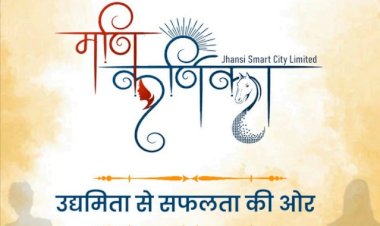Startups thrive in smaller cities.
Entrepreneurship is becoming the most popular job choice among today's youth. To stay close to their consumers while saving money, entrepreneurs are relocating their businesses to smaller communities. Startups are flocking to cities like Ahmedabad, Indore, Chandigarh, Lucknow, Patna, and others. Some firms are targeting Bharat (as opposed to India, which is dominated by metros), and it makes sense for them to start in a tier 2/3 city. DealShare, for example, caters to the middle-income group by offering substantial discounts on everyday items.

To stay close to their consumers while saving money, entrepreneurs are relocating their businesses to smaller communities.
In India's startup ecosystem, there is a gradual but distinct trend: highly qualified and experienced individuals and company founders are migrating from metros to tier-2 cities to establish breakthrough technological services in artificial intelligence, climate technology, IoT, and other fields.
Entrepreneurship is quickly becoming the most popular job choice among today's youth. In any industry, there are enormous chances to innovate for a vast and diverse consumer base.
India has long been a hotbed of entrepreneurship. India currently boasts the world's third largest startup ecosystem, with 51 unicorns (startups valued at over $1 billion). The majority of these businesses are based in major metropolitan areas. However, entrepreneurs are now relocating their businesses to smaller locations in order to be closer to their clients and save money.
According to the Economic Survey for 2018-2019, 16,500 companies were registered by March 2019, with a whopping half of those coming from India's tier 2 and tier 3 cities. Startups are flocking to cities like Ahmedabad, Indore, Chandigarh, Lucknow, Patna, and others.
The availability of resources such as office space and people at lower costs is a big draw for startups in tier 2 and tier 3 locations, especially in the early stages when they're bootstrapping.
Furthermore, some firms are targeting Bharat (as opposed to India, which is dominated by metros), and it makes sense for them to start in a tier 2/3 city rather than a metro to stay close to their customers. DealShare, for example, which caters to the middle-income group by offering substantial discounts on everyday items, relocated from Bengaluru to Jaipur in order to be closer to their clients while developing their product.
State governments add to the momentum by enacting startup policies and speeding up projects. For instance, the 'Punjab Startup Summit 2018,' the 'Startup Chhattisgarh Programme,' the 'Kerala Startup Mission,' and others. Several notable examples in this regard are the unique privileges that states such as Rajasthan and Gujarat provide to its entrepreneurs. Gujarat has also provided specific incentives as part of its Startup Gujarat initiative. Some of them include a '20,000 per month sustenance allowance for a year.
Startups in tier 2 and tier 3 cities confront similar difficulties. The lack of trained technical workers is one of the most pressing issues in smaller communities. There is a scarcity of AI-trained professionals, data scientists, and those who are well-versed in IoT technology. However, because to the epidemic, which has "levelled the funding playing field" for tier 2 and tier 3 city companies, this pattern is beginning to shift.
Similarly, incubation facilities in these regions are addressing the lack of a startup environment by providing world-class mentorship, proper workspace, seed capital, and other services.
Small-town entrepreneurship is a growing trend that was desperately needed. This would provide India with several opportunities in the global arena of research and development, as well as a boost to the economy through an infusion of internal investment and enthusiasm.

 Lalita Singh
Lalita Singh 






















